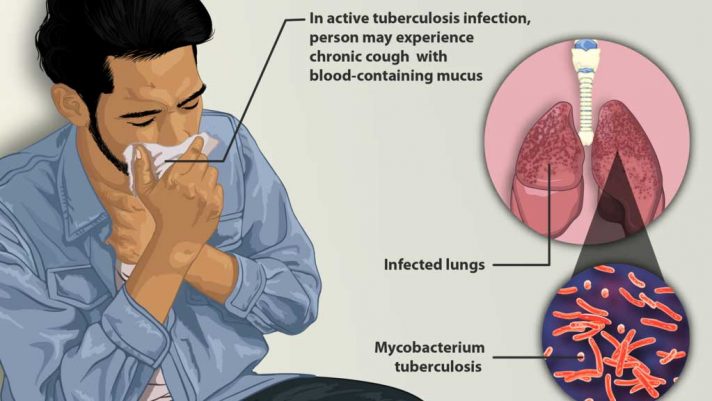March 23rd of every year, we mark World Tuberculosis Day across the world.
And while this continues to shorten human life as a leading cause of death, it is very important people are aware of the causes and how to prevent it.
Below are ten vital things everyone should know about Tuberculosis.
1. Tuberculosis (TB) is caused by the bacterium Mycobacterium tuberculosis and is an infectious disease that primarily affects the lungs but can also impact other parts of the body like the brain, kidneys, and spine.
2. TB is spread through the air when an infected person coughs, sneezes, or talks, but not through physical contact or sharing food.
bacterium Mycobacterium tuberculosis and is an infectious disease that primarily affects the lungs but can also impact other parts of the body like the brain, kidneys, and spine.
2. TB is spread through the air when an infected person coughs, sneezes, or talks, but not through physical contact or sharing food.
3. TB is a serious disease that can lead to death if not treated properly.
4. In 2019, there were 1.4 million TB-related deaths, and it is estimated that one-third of the world’s population is infected with TB.
5. Common symptoms include persistent cough, coughing up blood, fever, night sweats, and weight loss, although some people may not experience any symptoms at all.
6. Diagnosis of TB can involve various tests such as a skin test, blood test, or chest X-ray, and a sputum test may also be performed.
7. Treatment for TB involves taking a combination of antibiotics over several months, and it is important to complete the full course of treatment to prevent drug-resistant TB.
8. Certain populations such as those living in poverty, people with weakened immune systems, and those in crowded or unsanitary conditions are at a higher risk of developing TB.
9. Prevention measures include vaccination, improving living conditions, and early diagnosis and treatment.
10. The World Health Organization has set a goal to eliminate the global TB epidemic by 2030, which will require a coordinated effort to improve diagnosis and treatment, increase access to care, and address the social and economic factors that contribute to the spread of TB.
Tuberculosis in Nigeria
The fatality rate of tuberculosis (TB) in Nigeria is influenced by various factors, such as age, gender, health status, and the quality and accessibility of healthcare services.
Nigeria has been identified by the World Health Organization (WHO) as having one of the highest TB burdens globally, with an estimated 407,000 cases in 2020. In the same year, the TB mortality rate in Nigeria was estimated at 31 per 100,000 people.
However, these statistics are only approximations and may not accurately represent the actual TB fatality rate in Nigeria. It’s also important to note that TB fatality rates can vary widely among different regions and population subgroups in the country.
Individuals who suspect they may have TB or have been diagnosed with TB should seek medical attention promptly. With proper diagnosis and treatment, TB can be cured, and the risk of fatality can be significantly decreased.
Preventing Tuberculosis
While the prevention of tuberculosis in children is possible, its efficacy in adults is limited. To reduce the risk of contracting TB, it is advised to avoid close contact with individuals who have the disease until they have completed treatment and are no longer infectious.
With proper diagnosis and treatment, TB can be cured, and the risk of fatality can be significantly decreased.
Preventing Tuberculosis
While the prevention of tuberculosis in children is possible, its efficacy in adults is limited. To reduce the risk of contracting TB, it is advised to avoid close contact with individuals who have the disease until they have completed treatment and are no longer infectious.
Additionally, it is recommended to practice good hygiene by frequently washing your hands, covering your mouth when coughing or sneezing, and refraining from sharing utensils or cups.
A healthy immune system is also crucial in fighting off TB, so it is important to maintain a balanced diet, exercise regularly, and get sufficient sleep.
If you have been in contact with someone who has TB or has symptoms of the disease, such as coughing, fever, and weight loss, it is essential to get tested for TB as early diagnosis and treatment can help prevent the spread of the disease.



